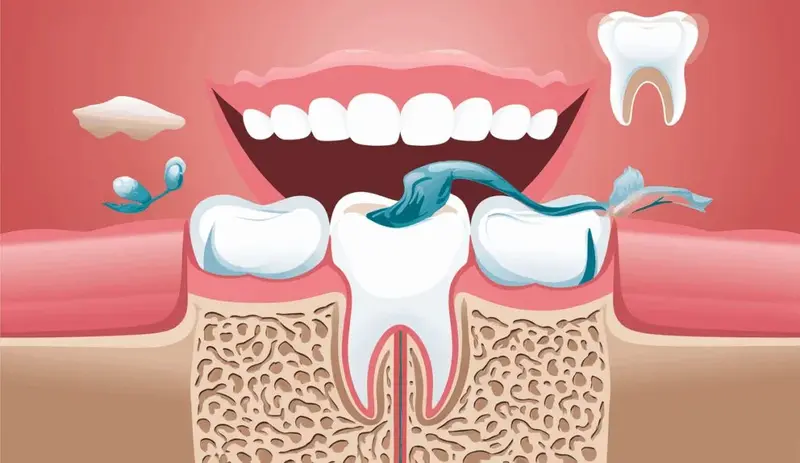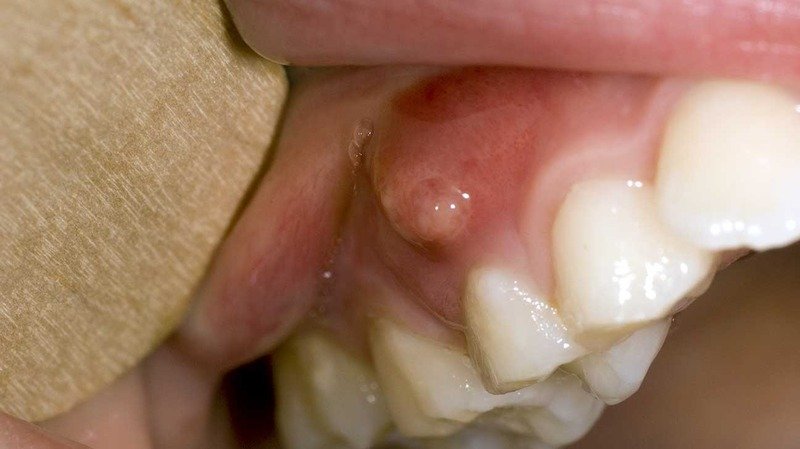
Scaling and root planing is a common dental procedure that can cause anxiety for many patients. In this article, we’ll address your concerns about pain, explain the process, and highlight why this treatment is essential for maintaining your oral health.
What Exactly Is Scaling and Root Planing?
Scaling and root planing may appear to be an intricate dental procedure, but it is a simple treatment aimed at keeping gums healthy. It is recommended when plaque and tartar (those stubborn, sticky deposits) form below the gum line, where they can’t be reached by a toothbrush.
The treatment involves scrubbing away those deposits and smoothening the tooth roots. The purpose of this treatment is to help the gums reattach to the teeth and to reduce inflammation that can lead to gum disease.
The process has two principal parts. The first is scaling: Your dentist meticulously eliminates tangles of plaque and tartar from your teeth and from below the gum line. The second part is root planing: Your dentist smooths out the tooth roots so that the gums will reattach properly.
We’ve seen this treatment serve a lot of our patients very well, especially here in Houston, TX. They’ve restored their gum health as a result of this treatment. And it’s also prevented them from having to deal with other, more serious dental issues in the future.
Does the Procedure Really Hurt?
The most common concern—pain—deserves to be addressed first. Although a deep dental cleaning might sound uncomfortable, modern methods have rendered it much more manageable.
Dentists usually employ a local anesthetic to make sure you’re at ease during the procedure. You might experience some pressure or slight discomfort, but sharp pain is virtually nonexistent.
• Sensitivity is minimized with numbing agents
• The procedure is performed, usually, in sections
• Most patients report discomfort on par with a lazy day at the neurophysiology lab.
What to Expect During the Treatment
An average scaling and root planing appointment lasts from 45 to 60 minutes, but the exact duration depends on how much cleaning is required. Your dentist will work with careful competence, often treating one quadrant of your mouth at a time. Expect to be seated in a comfortable position. The dental professional will use special tools to gently remove buildup and smooth the surfaces of the tooth roots.
If anxiety is making you tight-jawed, tell your dentist. Many practices, like LifeWorks Dental, are equipped with relaxation techniques or can simply take the time to step you through each part of the procedure to make you feel more comfortable.
You May Like To Read: Why Do I Have A Metallic Taste After Fillings?
Recovery and Aftercare Tips
You might feel a little tender or sensitive immediately after the procedure. Some slight swelling of the gums is also possible. But these things are completely normal and usually resolve in a few days. Here are some key recommendations for a smooth recovery:
• Brush teeth with a toothbrush that has soft bristles.
• Refrain from eating food that is extremely hot or cold.
• If advised to do so, rinse with a solution made of water and salt (the water should be warm).
• Obey all aftercare directions given by the dentist.
It is crucial to get in touch with your dental office straight away if you notice ongoing discomfort or too much bleeding.
Signs You Might Need This Treatment
Wondering whether scaling and root planing might assist you? Be on the lookout for these warning signs:
• Chronic halitosis
• Hypertrophied or bleeding gingiva
• Gingival recession
• Mobile teeth
• Dentogingival dehiscence (tartar buildup / calculus)
If you feel any of these symptoms, you should set up a consultation. Remember, stopping a more serious dental issue from taking hold can save you from more extensive treatments later on.
Every mouth is unique. What may work for one patient might not for another. Always consult a dental professional for unique-to-you advice.
Important Note:
If you want to find out more or plan a consultation, contact your nearby dental clinic for direction specific to your oral health.
Scaling and root planing is a crucial procedure for maintaining your dental health. While it’s natural to feel apprehensive, our experienced team at Lifeworks Dental is committed to ensuring your comfort throughout the process.
Remember, this treatment offers long-term benefits for your oral health. If you have any questions or concerns, don’t hesitate to reach out to our Houston-based professionals.






